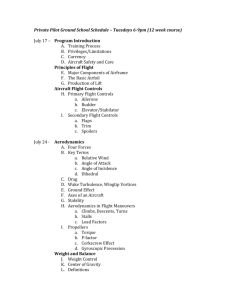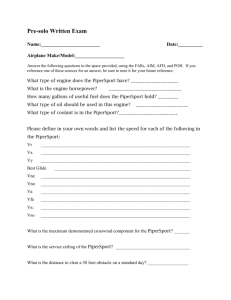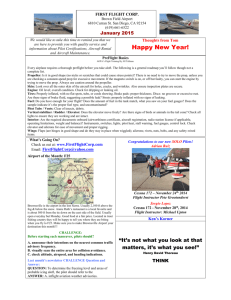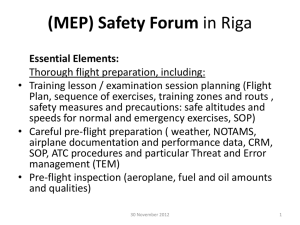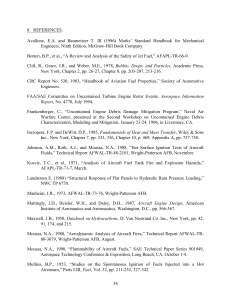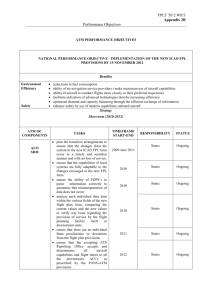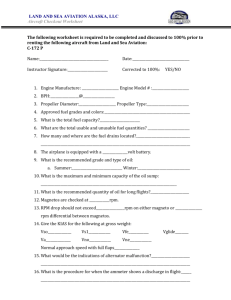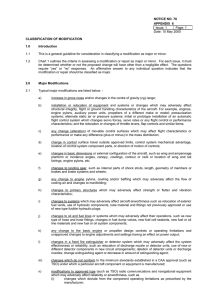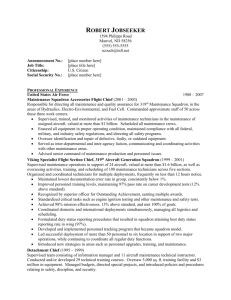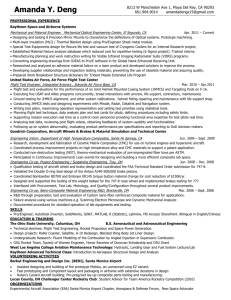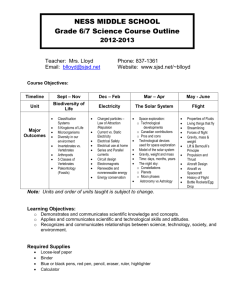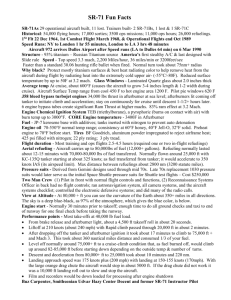Private Pilot Ground School Schedule – Thursdays 6
advertisement
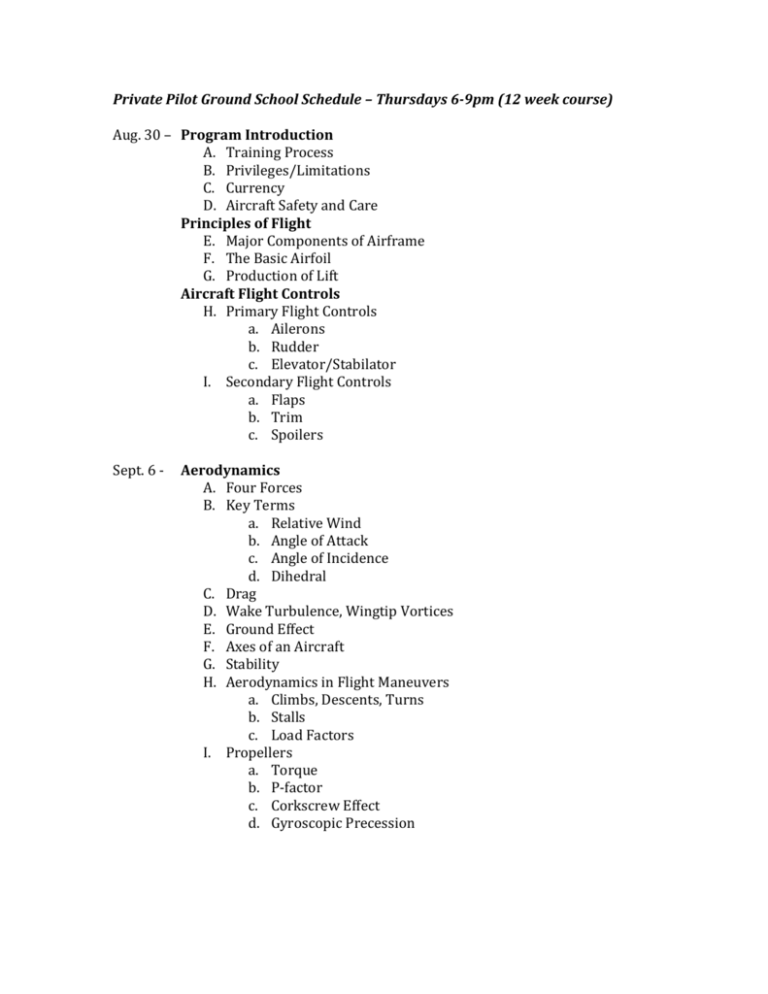
Private Pilot Ground School Schedule – Thursdays 6-9pm (12 week course) Aug. 30 – Program Introduction A. Training Process B. Privileges/Limitations C. Currency D. Aircraft Safety and Care Principles of Flight E. Major Components of Airframe F. The Basic Airfoil G. Production of Lift Aircraft Flight Controls H. Primary Flight Controls a. Ailerons b. Rudder c. Elevator/Stabilator I. Secondary Flight Controls a. Flaps b. Trim c. Spoilers Sept. 6 - Aerodynamics A. Four Forces B. Key Terms a. Relative Wind b. Angle of Attack c. Angle of Incidence d. Dihedral C. Drag D. Wake Turbulence, Wingtip Vortices E. Ground Effect F. Axes of an Aircraft G. Stability H. Aerodynamics in Flight Maneuvers a. Climbs, Descents, Turns b. Stalls c. Load Factors I. Propellers a. Torque b. P-factor c. Corkscrew Effect d. Gyroscopic Precession Sept. 13 - Weight and Balance A. Weight Control B. Center of Gravity C. Definitions a. Basic Empty Weight b. Standard Empty Weight c. Useful Load d. Formulas, Calculations Aircraft Operations A. Takeoff and Climb B. Approach and Landing C. Traffic Pattern D. Airport Operations a. Towered and Non-Towered Fields b. Signs and Markings c. Radio Communications d. Runway Incursions and Avoidance Flight Instruments A. Gyroscopic Instruments B. AHRS C. Pitot-Static Instruments D. ADC Sept. 20 - Review/Make-up Session 1 Sept. 27 - Aircraft Powerplant A. 4-stroke cycle B. Ignition C. Induction D. Oil E. Cooling F. Engine Troubleshooting G. Engine Performance a. Effects of Altitude b. Proper Grade of Fuel c. Fuel Contamination d. Detonation e. Pre-Ignition Performance Data and Charts H. Key Terms/Definitions I. Pressure Altitude Computation J. Cirrus K. Skyhawk Oct. 4 - Aircraft Systems - Cirrus A. Engine B. Fuel System C. Electrical System D. Propeller/Governor Aircraft Systems - Skyhawk E. Engine F. Fuel System G. Electrical System H. Vacuum System Oct. 11 - Aviation Weather A. Basic Theory a. Composition of the Atmosphere b. Temperature and Pressure c. Wind d. Moisture e. Stability f. Turbulence g. Clouds h. Air Masses and Fronts B. VFR/MVFR/IFR Definitions C. Thunderstorms D. Icing Weather Services E. METAR F. TAF G. Area Forecast (FA) H. Winds and Temps Aloft I. Severe Weather Reports and Forecasts a. AIRMETs, SIGMETs, Convective SIGMETs J. Pireps K. Charts a. Surface Analysis, Weather Depiction Chart, Radar Summary, Significant Weather Prog L. Resources a. ADDS, DUATS, fltplan.com, etc. Oct. 18 - Review/Make-up Session 2 Oct. 25 - National Airspace System A. A, B, C, D, E, G Airspace B. Requirements for Entry C. Weather Minimums Charts and Navigation D. Aeronautical Charts and Symbols E. Calculations a. Variation, Deviation, Wind F. Pilotage and Dead Reckoning G. Radio Navigation a. VOR b. DME H. GPS I. Lost Procedures Cross-Country Planning J. Step-By-Step Process K. Filing Flight Plans Nov. 1 - Federal Aviation Regulations A. Part 61 B. Part 91 C. NTSB 830 Maintenance, Manuals, and Documentation A. Required Maintenance and Documentation B. Preventative Maintenance C. Airworthiness Directives Nov. 8 - Aeronautical Decision Making A. CRM/SRM B. I’M SAFE C. Hazardous Attitudes D. Decision-Making Process Aeromedical Factors E. Medical Certificates F. Physiological Factors G. Illusions and Disorientation H. Vision Emergency Procedures I. Engine Failure J. Spins K. Fires L. Loss of Oil/Fuel Pressure M. High Oil Temperatures N. Alternator Failure O. Engine Roughness Night Operations P. Night Physiology Q. Equipment R. Aircraft and Airport Lighting S. Navigation T. Emergencies Nov. 15 - Comprehensive Review and Practice Oral Exam
